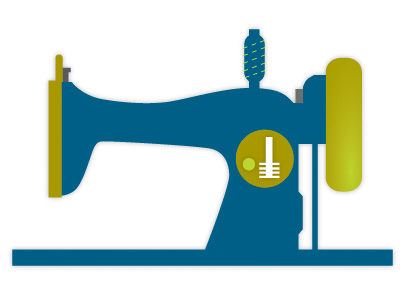
In a backlash against consumer culture, people are demanding products as unique as they are.
“If you go to Gap or Banana Republic, you are getting the same thing that someone in England is buying, or someone in the next town is buying, or someone in Southeast Asia is buying. There is no individuality anymore,” said Matthew Stitchcomb, vice president of marketing and communications for Etsy, an online venue with over 50K active sellers. In a world of mass-produced sameness, more and more people are craving the unique.
Skill and Craftsmanship
Those who opt for handmade items avoid the chaotic mall parking lots and chain store lines in favor of something more meaningful. They indulge themselves in the satisfaction of supporting an artist or crafter directly, honoring skill and craftsmanship, which are largely absent in the world of large-scale manufacturing.
Buying handmade may be a little more expensive than getting something that has been mass produced, but the quality of the finished product is often times better. Mass produced products are consistent with an intentionally shorter product lifespan. Products handmade by craftsmen are less likely to be built in a slipshod manner —  especially if the artisan has created an identifiable brand and the work itself becomes a legacy to the creator. These creations are lovingly made in a way that will last, benefiting both the consumer and the environment. Quality over quantity!
especially if the artisan has created an identifiable brand and the work itself becomes a legacy to the creator. These creations are lovingly made in a way that will last, benefiting both the consumer and the environment. Quality over quantity!
An example of growth:
January 2011 was the first time Etsy recorded over a billion page visits in a month!The $37.3 million of goods sold by the community in 2010 represents a 75% increase from 2009’s total. At the same time, items sold were up 62%.
Better for People
Our chain store culture, fueled by global manufacturing, has left us dressing, furnishing and decorating alike. We are encouraged to be consumers, not producers, of our own culture. Our ties to the local and human sources of our goods have been lost. Buying handmade helps us reconnect. Consumers are becoming increasingly aware of, and interested in, the source of things they buy, whether they want to buy with a conscience or to impress friends and acquaintances. Knowing who made something and where it came from adds value both to the product and the purchase.
 In certain instances eschewing the manufactured product is akin to heroism. “Just look at the news: lead recalls, sweatshop conditions in foreign factories, the loss of jobs in America’s heartlands. It has left a bitter, dehumanizing taste in the mouths of many consumers. And I think that’s a big reason why handmade is becoming so prevalent; it’s a rallying cry for us to bring the humanity back into shopping,” said Sion Lee, the founder of Indiepublic.com, a social network that caters to independent artists and designers.
In certain instances eschewing the manufactured product is akin to heroism. “Just look at the news: lead recalls, sweatshop conditions in foreign factories, the loss of jobs in America’s heartlands. It has left a bitter, dehumanizing taste in the mouths of many consumers. And I think that’s a big reason why handmade is becoming so prevalent; it’s a rallying cry for us to bring the humanity back into shopping,” said Sion Lee, the founder of Indiepublic.com, a social network that caters to independent artists and designers.
Kind to the Environment
The accumulating environmental effects of mass production contribute greatly to pollution of our air, water and soil. Until some of these problems are addressed satisfactorily, mass production continues to challenge our earth. With mass production increasingly being sourced to Asian countries, that “really cool” chair might have already racked up a sizable carbon footprint in its journey to the mall.
True cost
Everything contributing to the price of an artisan or handmade product is directly related to the time, elements and brand that made it without the additional markup associated with the many hands required to assemble and transport a mass produced item. For example, a blanket may have cost a dollar to make, but it is not inconceivable that by the time it travels overseas to the store display, it might retail for $30.
Don’t get me wrong. I love the Target experience as much as anyone. But I have found that as I make the transition to buying more local and regional handcrafted goods, my spending and consumerism decreases. My overall satisfaction with the items I have selected is far greater and they tend to last decidedly longer.
All images of Etsy were provided by Ty Cole from a photoshoot of the Etsy offices for his blog. Visit his sites at: www.tycole.blogspot.com + www.tycole.com



